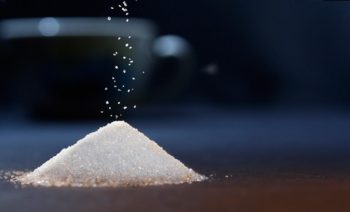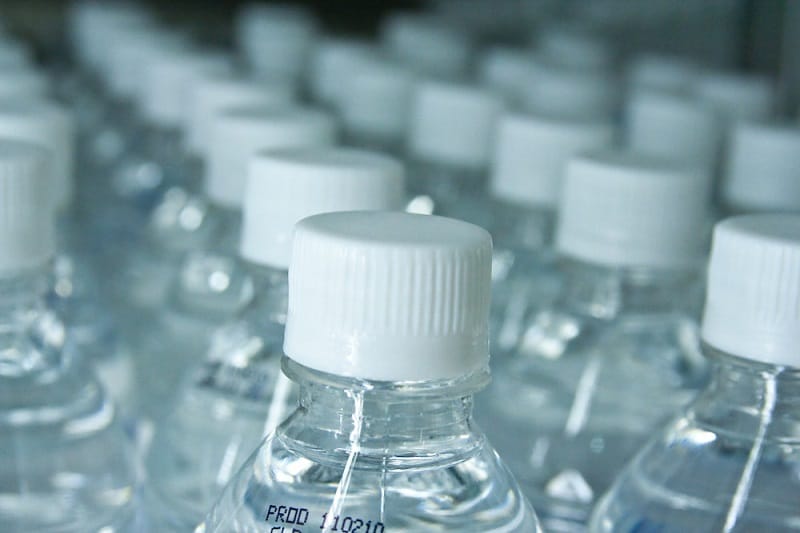Your next-door neighbor has a reverse osmosis drinking water system, and the water tastes great, but are you better off hauling cases of water, or should you get a reverse osmosis water system of your own?
Is Reverse Osmosis Worth The Money? A reverse osmosis system that costs a few hundred dollars will pay for itself in just a year or two of savings compared to the cost of buying bottled reverse osmosis water from a store. Most people that own a reverse osmosis drinking water system find that it is well worth the money.
You’re sick and tired of hauling cases of bottled water from the store to your home, but you want to make sure that you and your family have safe water to drink.
So having a reverse osmosis system can make better quality drinking water cheaper than buying it from a store, but is it really worth the cost of buying a reverse osmosis drinking water system? Let’s find out!
If your water is high in sodium, a reverse osmosis drinking water system is well worth it!
Most well water and municipal water alike has a significant amount of sodium in it.

If you or your family like to drink water on a regular basis, your best choices are to buy case after case of bottled water or filter your homes’ water to reduce the amount of sodium in it.
Filter pitchers and faucet filters do a great job of reducing odors in your water and making your water taste better, but they are not for sodium reduction.
You could distill your water by bringing it to a boil and then collect the droplets that form from the steam, but that is hardly easy or convenient.
The most practical way to remove sodium from water for everyday household use is by using a reverse osmosis drinking water system.
By simply turning on your reverse osmosis faucet, you will have quality lowered sodium drinking water whenever you want it.
An average reverse osmosis system will pay for itself before you know it!
Depending on what reverse osmosis system you decide on, the savings in purchasing bottled water could pay for your reverse osmosis system in as little as one year.
The difference in the cost of making your own reverse osmosis filtered water at home, and buying reverse osmosis by the case is more than most people think.
An average priced brand of reverse osmosis bottled water will cost you about $1.52 per gallon, whereas the average cost of making it yourself with a reverse osmosis drinking water system is only about 3 cents.
That means that you are paying $1.49 more per gallon for the privilege of carrying cases of reverse osmosis water from the store to your home. That doesn’t sound like a very good deal to me!
What this also means is that if your family consumes just 2 gallons of reverse osmosis water per day, buying bottled reverse osmosis water from the store will cost you $1,087.70 more per year.
If you check my recommended reverse osmosis systems, you will find that $1,087.70 per year could buy you a brand new reverse osmosis system every year with plenty of money left over.
Even if your family only consumes 1 gallon of reverse osmosis filtered water per day, you would still save enough money to get a second reverse osmosis system for another room in your home in just one year.
Even a deluxe reverse osmosis system will save you money.
Some of the more elaborate reverse osmosis drinking water systems have many stages to them.
One of my recommended reverse osmosis systems even has an ultraviolet purifier on it. But even that one would pay for itself in just one year.
Even the cheapest bottled reverse osmosis water will cost you more than making you own.

The least expensive bottled reverse osmosis water that I have found still costs about $1.26 per gallon, which is still $1.23 more than what it would cost if you got your reverse osmosis water from your own system.
At this low end of the bottled reverse osmosis water spectrum, you would still save $448.95 per year by getting your drinking water from your own reverse osmosis drinking water system with your family using just 1 gallon of reverse osmosis water per day.
A quality reverse osmosis system will last for many years.
Even though you could easily buy a new reverse osmosis system every year with the money you save by having your own reverse osmosis drinking water system, you won’t need to.
A reverse osmosis system is not a one time use system.
A quality system like one of my recommended reverse osmosis systems will last for many years before it will need to be replaced.
Other than changing your filters as needed, and replacing the reverse osmosis membrane every few years, there is little that you have to do to maintain your reverse osmosis system.
And the cost of new filters is only around 50 bucks.
Check out my recommended reverse osmosis filters to see the current price for some of the most popular reverse osmosis systems on the market today.
I recommend sanitizing your reverse osmosis system at least once per year to make sure that it is producing quality water.
And to do this you only need to get a small dose of reverse osmosis sanitizer which you can find in my recommended products.
No more returning all of those empty bottles.
Recycling is so important to our environment, which means that for every case of bottled reverse osmosis water you buy, there will be one case of empty bottles that you have to recycle.
And they can build-up very quickly. It seems like every time you turn around, you see that the recycle bag of empty bottles is full again.
Just imagine if you never had to bring back empty bottles again!
No more lifting those big water jugs.
If you are not buying cases of water, you may be buying huge, heavy jugs of water that are delivered to your house, but you are still the one that has to lift them up and get them on your water cooler.
The delivery person leaves the jugs on your doorstep, then you have to bend over and lug them into your kitchen.
And those bulky jugs don’t just go away after they are empty.
You put them into the garage or in a storage room when they are empty, and they keep falling over and making a mess.
What if they just went away, along with that ugly cooler in the corner. Having a reverse osmosis system in your home would eliminate the need for those water jugs once and for all.
A reverse osmosis system has minimal long term costs!
If you think about it, a reverse osmosis drinking water system has very little maintenance required with the exception of the occasional filter change and replacing the reverse osmosis membrane when needed.
For most common reverse osmosis systems, the filters are very easy to change, and they only cost about $50. And that’s pretty much the only long term costs that you will incur.
There is no need for expensive service calls, or special parts to be replaced, just filters.
So as you can see, a reverse osmosis drinking water system is certainly worth the money. The initial investment is very reasonable, and the savings will pay for the unit very quickly.
Having a reverse osmosis system in your home will free-up time that you would normally be spending carrying in cases of water, and there will be much more room in your refrigerator.
Take a close look at my recommended reverse osmosis systems and see for yourself how owning a reverse osmosis drinking water system will benefit you and your family.


Hi, I was wondering if you could tell me if a reverse osmosis water filter is significantly better than a ZeroWater water pitcher. Thank you!
Hello Kevin, and thank you for the question.
In my opinion, it is not as simple as one being better than the other, but they are both great for different situations. The goal of both systems is to reduce dissolved solids from water to make it healthier to drink, but the quality of the water going into each system will greatly influence the quality coming out and the cost effectiveness of each system.
For example, running water with 100 total dissolved solids through a zero water pitcher should produce water with 0 TDS(for a while). As the filter builds-up with filtered out impurities, the TDS of the water will creep-up and the quality will go down until you change the filter.
While a reverse osmosis system will normally reduce 100 TDS water to about 2-8, and can do this for a long time without changing the membrane.
Of course this all depends on how much water you use, and other water characteristic of the water. Hard water, iron, and a high TDS in the water to be filtered may greatly shorten the life of a Zero water filter or a reverse osmosis membrane.
Also, a Zero water pitcher has to be re-filled, where this is not the case with a reverse osmosis system.
My recommendation is, if you have soft and iron free water and your water has relatively low TDS of 100 or so, and you only use a gallon or so of filtered water per day, then a Zero water filter will work great for you.
But if you have a family that uses 10 gallons of drinking water or more per day, or your water has a TDS of 200 or more, and you are looking for a system to use for a long time, a reverse osmosis system would be a much better fit.
Test your waters TDS with a TDS meter to find out your TDS. Hard water and other contaminants found in water will shorten the life of either system, and then decide which one fits your needs best.
Remember to consider that Zero water filters can cost about $15 each, and if you use 4 a year, that’s $60 a year, which is about the same cost as replacement filters for a reverse osmosis system for one year.
Check out my recommended reverse osmosis systems and water filter pitchers for more information.
Paul